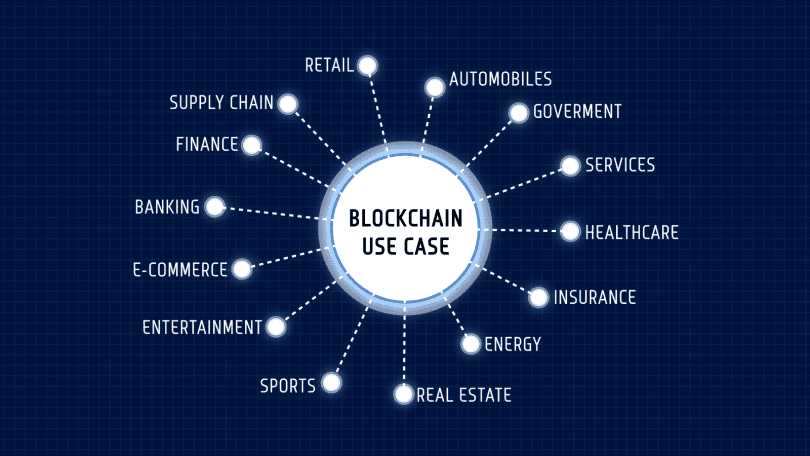Blockchain: The Technology Transforming Our Lives and Work
Blockchain technology, once primarily associated with cryptocurrencies like Bitcoin, has evolved into a transformative force reshaping various aspects of society. In this article, we'll explore blockchain's societal impact, delve into real-world use cases, and highlight specific examples illustrating how it is changing our daily lives and work.
Blockchain's Profound Impact on Society
Blockchain's influence on society is profound and multifaceted. It introduces trust, transparency, and decentralization, disrupting traditional systems and unlocking new possibilities:
1. Enhancing Trust: Blockchain's immutable and transparent nature reduces the reliance on intermediaries, ensuring the trustworthiness of data and transactions, ultimately bolstering trust in various sectors.
2. Financial Inclusion: Blockchain enables financial services for unbanked and underbanked populations, granting them access to banking, lending, and remittance services without relying on traditional banks.
3. Supply Chain Transparency: Blockchain traces the origin of products, ensuring ethical sourcing and authenticity, a critical factor in industries like food, fashion, and pharmaceuticals.
4. Reducing Fraud: Blockchain's cryptographic security features combat identity theft, counterfeit products, and fraud.
5. Voting Systems: Blockchain can enhance the integrity of voting systems by offering secure and verifiable online voting platforms.
Real-World Blockchain Use Cases

Blockchain's potential extends well beyond cryptocurrencies, actively being applied to various real-world scenarios:
1. Supply Chain Management: Companies like Walmart and IBM use blockchain to track the movement of goods, reducing fraud, ensuring product quality, and enhancing efficiency.
2. Healthcare: Blockchain securely manages patient records, streamlining access for authorized personnel while safeguarding patient privacy.
3. Real Estate: Property transactions become expedited and more secure with blockchain, reducing fraud and simplifying property title transfers.
4. Cross-Border Payments: Blockchain facilitates faster, cheaper, and more transparent cross-border payments and remittances, benefiting both individuals and businesses.
5. Intellectual Property: Artists, writers, and creators can safeguard their intellectual property rights by recording them on blockchain, ensuring fair compensation.
6. Smart Contracts: These self-executing contracts automate agreements and transactions, reducing the need for intermediaries and streamlining processes in areas like insurance, legal, and real estate.
7. Voting Systems: Blockchain has the potential to create secure and transparent voting systems, ensuring the integrity of elections through verifiable and tamper-proof records.
8. Energy Trading: Certain regions are adopting blockchain for peer-to-peer energy trading, allowing individuals and businesses with renewable energy sources to sell excess power directly to neighbors, fostering more efficient and sustainable energy markets.
9. Remittances: Blockchain-based remittance services offer a cost-effective and efficient method for individuals to send money across borders, particularly beneficial for migrant workers supporting their home countries.
10. Gaming: Blockchain is revolutionizing the gaming industry by enabling the creation of non-fungible tokens (NFTs) for in-game assets, enabling gamers to own and trade digital items with real-world value.
Blockchain's Influence on Our Lives and Work
Blockchain is impacting various aspects of modern life and work:
1. Financial Services: Banks and financial institutions adopt blockchain for faster, more secure transactions, reducing costs and fraud.
2. Decentralized Finance (DeFi): DeFi platforms leverage blockchain to provide financial services without traditional intermediaries, making lending, borrowing, and trading more accessible.
3. Remote Work: Blockchain can verify remote work credentials, enhancing trust in the gig economy and enabling secure online work arrangements.
4. Supply Chain: Consumer demand for product transparency leads companies to integrate blockchain into supply chain management.
5. Digital Identity: Blockchain-based identity solutions reduce identity theft and simplify online identity verification.
6. Education: Academic credentials stored on blockchain allow students to securely and easily share their achievements.
Concrete Examples of Blockchain Improving Lives
Blockchain technology is already making a meaningful difference in our lives:
1. Food Safety and Authenticity: Walmart uses blockchain to track produce from farm to store, quickly addressing contamination issues.
2. Healthcare Data Management: MedicalChain securely stores patient records, ensuring privacy and efficient healthcare delivery.
3. Real Estate Transactions: Propy simplifies property transactions, reducing fraud and expediting deals.
4. Cross-Border Payments: Ripple's blockchain-based payment network reduces transaction times and costs for cross-border remittances.
5. Intellectual Property Protection: Monegraph timestamps and authenticates digital art, protecting creators' rights.
6. Smart Contracts for Insurance: Etherisc automates insurance agreements, offering instant payouts for met conditions.
7. Secure Online Voting: Voatz enhances the security and transparency of online voting, enabling remote voting with confidence.
8. Peer-to-Peer Energy Trading: Brooklyn Microgrid uses blockchain for energy trading, reducing waste and costs.
9. Digital Identity Management: Sovrin provides blockchain-based identity solutions, enhancing online security.
10. Financial Inclusion with DeFi: DeFi platforms like Aave and Compound offer decentralized lending and borrowing services.
11. Remittances: Companies like BitPesa use blockchain for cheaper and faster remittances.
12. Academic Credential Verification: Learning Machine and MIT use blockchain for secure digital academic credentials.
13. Gaming and NFTs: Blockchain-based games like CryptoKitties and Axie Infinity provide true ownership of digital items.
14. Humanitarian Aid Distribution: The United Nations World Food Programme uses blockchain to transparently distribute aid.
These examples showcase blockchain's versatility and impact across sectors. As it continues to evolve, blockchain promises to drive further improvements in our lives, enhancing efficiency, security, and transparency. Whether ensuring food safety, protecting digital identities, or revolutionizing gaming, blockchain reshapes how we interact with the world.
In conclusion, blockchain technology revolutionizes our lives and work, enhancing trust, security, and transparency in industries from finance to healthcare and beyond. As blockchain evolves, its potential to improve our lives and reshape our world remains limitless. It is a transformative force, poised to bring positive change to society in ways we are only beginning to explore.

Director@GlobalVox | Founder - BiG Deal - blockchain based auction platform | Certified crypto and blockchain expert | ICO-IDO consultant








 +1 305 413 5002
+1 305 413 5002
 +91 9979 311311
+91 9979 311311
